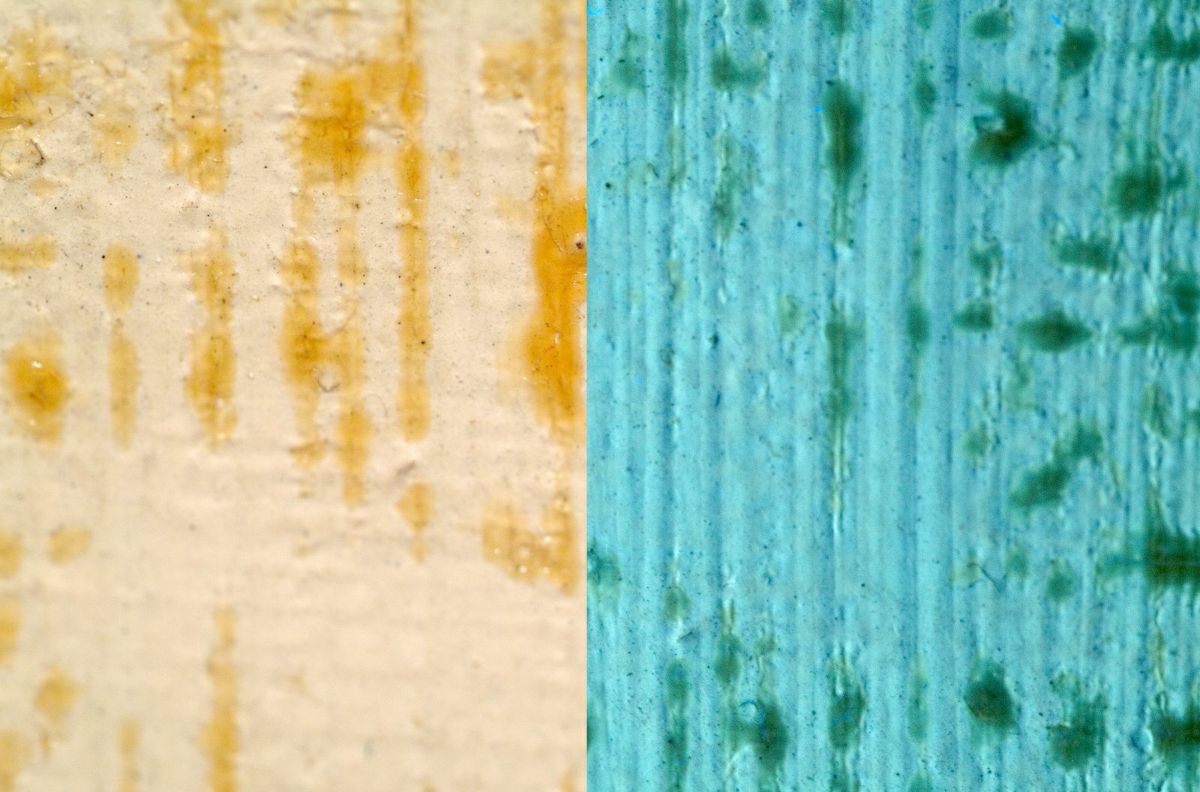Venice turpentine
Jump to navigation
Jump to search
Description
A thick viscous exudation from the Austrian larch tree, Larix decidua. Venice turpentine contains 63% resinous acids, 20% terpenes and 14% resins. It has been used since the 16th century in small amounts as a nonyellowing addition to oil paints where it produces an enamel like surface. Venice turpentine is not used as a varnish because it quickly becomes dark and brittle when exposed to oxygen and light. It is used as a mounting medium for light microscopy. Venice turpentine has also been used as a plasticizer in glue paste linings (Ackroyd 1996).
Synonyms and Related Terms
Larix decidua; trementina de Venecia (Esp.); trementina veneta (It); larch turpentine; Venetian turpentine
Physical and Chemical Properties
- Soluble in oil, turpentine, ethanol, ammonium hydroxide, glacial acetic acid, acetone, alkalis.
- Insoluble in water.
- Refractive Index = 1.53
Resources and Citations
- Paul Ackroyd "Glue-Paste Lining of Paintings: An Evaluation of Some Additive Materials" ICOM Edinburgh 1996 p.231-238.
- R. J. Gettens, G.L. Stout, Painting Materials, A Short Encyclopaedia, Dover Publications, New York, 1966
- G.S.Brady, Materials Handbook, McGraw-Hill Book Co., New York, 1971 Comment: p. 832
- Reed Kay, The Painter's Guide To Studio Methods and Materials, Prentice-Hall, Inc., Englewood Cliffs, NJ, 1983
- Ralph Mayer, A Dictionary of Art Terms and Techniques, Harper and Row Publishers, New York, 1969 (also 1945 printing)
- Richard S. Lewis, Hawley's Condensed Chemical Dictionary, Van Nostrand Reinhold, New York, 10th ed., 1993
- Susan E. Schur, Conservation Terminology: A review of Past & Current Nomenclature of Materials, Technology and Conservation, Spring (p.34-39); Summer (p.35-38); Fall (p.25-36), 1985
- Michael McCann, Artist Beware, Watson-Guptill Publications, New York City, 1979
- Kurt Wehlte, The Materials and Techniques of Painting, Van Nostrand Reinhold Co., New York, 1975
- Paintings Specialty Group, Painting Conservation Catalog, Wendy Samet (ed.), AIC, Washington, DC, 1998
- John S. Mills, Raymond White, The Organic Chemistry of Museum Objects, Butterworth Heineman, London, 2nd ed., 1994
- The Merck Index, Martha Windholz (ed.), Merck Research Labs, Rahway NJ, 10th edition, 1983 Comment: entry 10078
- Thomas B. Brill, Light Its Interaction with Art and Antiquities, Plenum Press, New York City, 1980
- Gordon Hanlon, contributed information, 1998
- Art and Architecture Thesaurus Online, http://www.getty.edu/research/tools/vocabulary/aat/, J. Paul Getty Trust, Los Angeles, 2000
